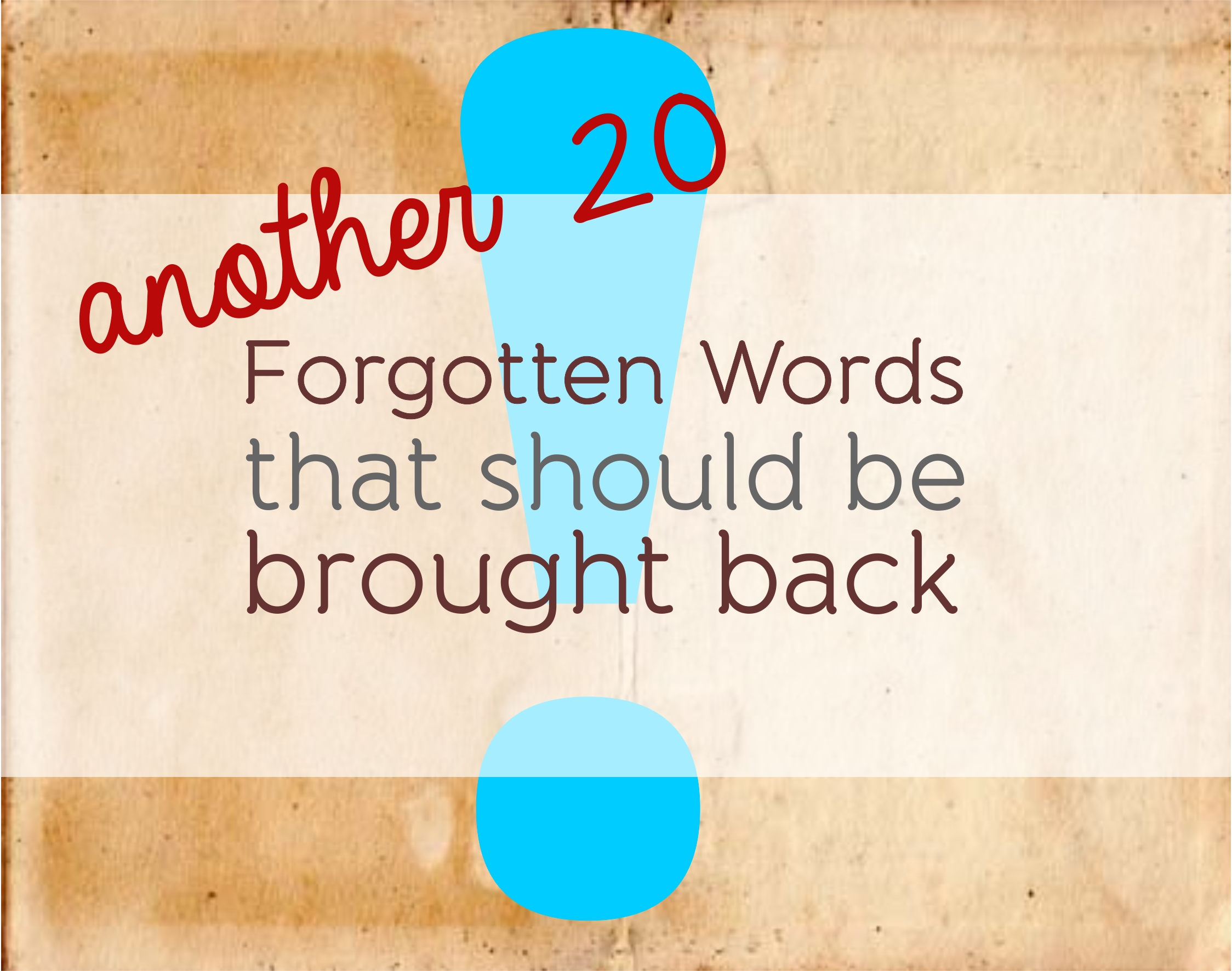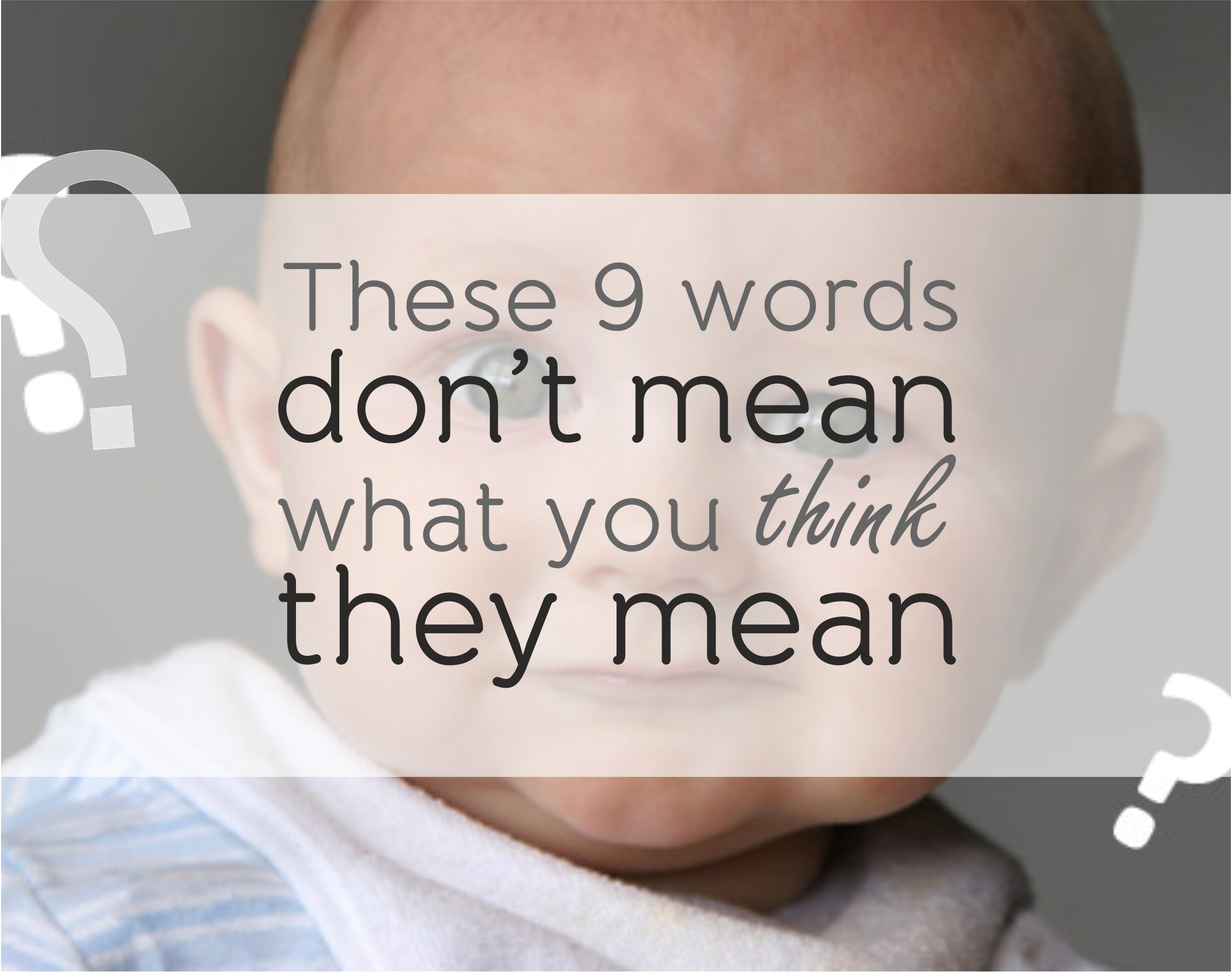9 Novel English neologisms
[nurd]

The slang term nerd means an intelligent but single-minded person, obsessed with a certain hobby or pursuit, e.g. a computer nerd. But the word that has been the bane of so many elementary schoolers’ existence was actually invented by their king: none other than Dr. Seuss himself! The word first appeared in print in Seuss’ 1950 picture book, If I Ran the Zoo, though Seuss’ “nerd” is a small animal from the land of Ka-Troo, not a pale kid with glasses taped together.
Yahoo
[yah-hoo, yey-, yah-hoo]
The origin of this word may add some unexpected irony to the well-known internet browser. Originally coined by Jonathan Swift in his 1726 novel Gulliver’s Travels, Yahoo refers to the brutish race of homo sapiens ruled by the Houyhnhnm, a noble race of speaking horses. Swift’s Yahoos display all of the vices of humanity with none of the virtues, thus it makes sense that the word has come to mean “a coarse or brutish person.” If you say “yahoo” loud enough you might be moved to experience our next neologism.
Chortle
[chawr-tl]

Lewis Carroll coined this funny term for a gleeful chuckle in his 1872 novel, Through the Looking Glass, the sequel to Alice’s Adventures in Wonderland. In the novel, the word appears in a verse poem titled “The Jabberwocky,” in which Alice finds a book that can only be read using a mirror. The old man in the poem “chortles in his joy” when his son beheads the terrible monster. Today the word is widely thought to be a combination of “chuckle” and “snort.”
Quark
[kwawrk, kwahrk]
A quark can be any group of elementary particles that combine to become a subatomic particle such a neutron or proton. In other words, quarks are some of the smallest building blocks of an atom. In 1964 the U.S. physicist Murray Gell-Mann named the particle after a word he found in James Joyce’s novel, Finnegan’s Wake. Joyce’s quotation reads, “Three quarks for Muster Mark,” with “quark” referring to the cry of the seagull.
Utopia
[yoo-toh-pee-uh]

Utopia is the title of Sir Thomas More’s whimsical and satirical book written in 1516. More envisions a perfect society situated on an island that he names Utopia. Developing the word from the Greek topos for “place,” More chose the prefix ou- or u- meaning “not” or “no.” Thus the name Utopia quite literally means no place at all. Even though More might have his reservations about the achievability of a perfect world, our next neologism might be the closest thing to a perfect sound.
Tintinnabulation
[tin-ti-nab-yuh–ley-shuhn]

The American poet and author Edgar Allen Poe coined this onomatopoetic word in his 1849 poem “The Bells.” The poem was published shortly after Poe’s death, and though the four sections of the piece become progressively darker as Poe describes four different types of bells, tintinnabulation characterizes the joyous sound of silver sleigh bells, foretelling “a world of merriment.” The word is derived from the Latin tinnire meaning “to ring” combined with the instrumental suffix “bulum.”
Grok
[grok]

Do you feel like nobody groks you? Don’t worry, Robert A. Heinlein does. In his 1961 best-selling science fiction novel, Stranger in a Strange Land, Heinlein coined the term to mean an understanding so thorough that “the observer becomes a part of the observed–to merge, blend, intermarry, lose identity in group experience.” But in common usage the term means to communicate sympathetically or to “drink in” understanding. If you’re reading this slideshow off a screen, you’ll definitely grok our next neologism.
Cyberspace
[sahy-ber-speys]

Though you might not want to build a house there, anyone with a computer has a stake in cyberspace. Coined by the science fiction writer William Gibson, cyberspace first appeared in a 1982 short story. The word combines the terms “cybernetics” (the use of mechanical and electronic systems to replace human function) and “space” (an area or realm). Together they form “cyberspace,” the realm of electronic communication or virtual reality. If you’ve ever thought “virtual reality” was a bit of an oxymoron, you might be familiar with our final neologism.
Catch-22
[kach-twen-tee-too]

“The deal sounds great, but what’s the catch?” Have you heard something like this? Then you’d better hope the catch isn’t a Catch-22. The phrase represents a frustrating situation in which one is trapped by contradictory regulations or conditions. Catch-22 is the title and central problem of Joseph Heller’s 1961 novel, and in Heller’s context the catch represents a simultaneously dangerous and idiotic military regulation that maddens the poor characters tangled in his Catch-22.



















I really like your ‘blog’. Keep it up!
Funny and insightful. I read Gulliver travels in school. But couldn’t recollect the word yahoo . This as a matter of fact is an absolutely delight of a site.